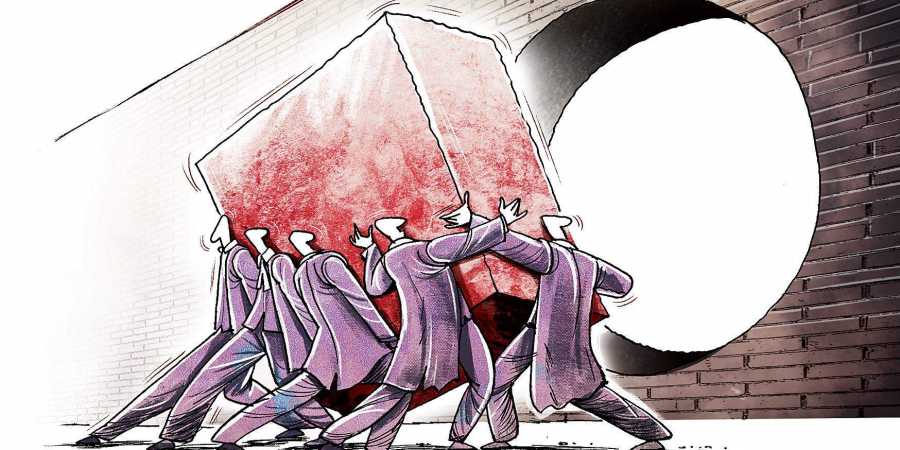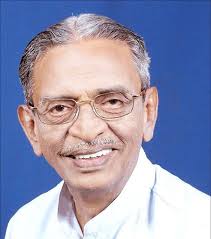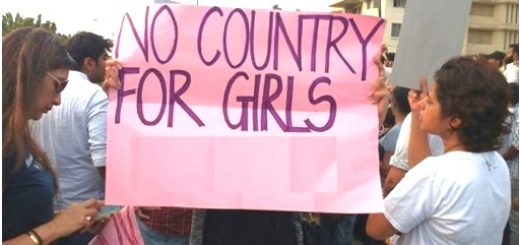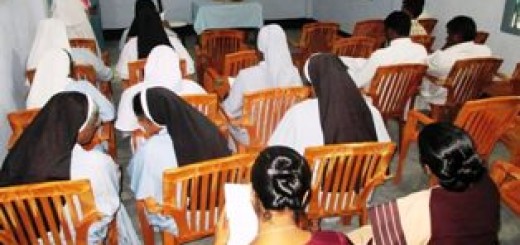Faith Right vs Gender Right? Gender, Rights and Sabarimala

By T. N. Seshan
The New Indian Express
1 December 2018

The argument is that men and women are absolutely equal. Nobody questions this wisdom. But the creator, in his wisdom, has not made men and women identical. The tasks that men can perform, women cannot, and vice versa. However much we try to force a notional equality, the two sexes are functionally different. – T. N. Seshan
Note: T.N. Seshan is a retired IAS officer of Tamil Nadu cadre. He was the 10th Chief Election Commissioner of India, who reformed elections by ending many of its malpractices in the country.
For that reason, he has become an unforgettable name among election commissioners in India. All recall his name and image with nostalgia, when we see the performance of other commissioners who came before or after him. It is precisely for that reason his views on Supreme court verdict on Gender equality and Faith practice of inequality on Sabarimala is produced here.
Don’t mix religion & politics
Sheshan points out that the basis of gender equality is different for constitution and for faith (religion). Constitutional gender equality applies to all irrespective of their religious beliefs, the other differs, for different faiths. The first is of recent origin enforced by SC judgment and can be changed; the second is ages old from the beginning of various faiths which can’t be changed. So religion and politics can’t mix, being of different domains.
For religion, tasks that men can perform, women cannot, and vice versa. However much we try to force a notional equality, the two sexes are functionally different. It would be like comparing Chalk and Cheese! So constitution should not interfere in religious beliefs and practices, nor should religions impose their beliefs and practices on people of different faiths or unbelievers.
The issue in Sabarimala is not gender equality, but faith and age old ritualistic practices sacred to a particular religion. Only those who believe in them need to go there because it is not a tourist centre, a wayside inn or a hotel. james kottoor, editor ccv.
Read below the views of T. N. Seshan on Sabarimala
The Supreme Court has said that women should be allowed entry into the Sabarimala temple. Its recent judgment on the issue is based on equality between men and women. The verdict delivered by the apex court is being hailed by a section of people as a step forward for equality. The same section of people is also branding any opposition to the judgment as a reaction from chauvinistic or patriarchal forces in our society.
On the other hand, another section of people, which is contesting the verdict, terms it an attack on their personal faith and even women among the faithful are coming out in support of this perspective, saying that the verdict is violating their right to practise their faith.Now, the ideas of constitutional equality are far younger than original ideas of tradition about how worship is to be done. This is not to question the wisdom of the Supreme Court judges, or their decision, but constitutional equality is a recent notion, whereas traditions of religion and faith are far older.
The argument is that men and women are absolutely equal. Nobody questions this wisdom. But the creator, in His wisdom, has not made men and women identical. The tasks that men can perform, women cannot, and vice versa. However much we try to force a notional equality, the two sexes are functionally different.
Constitutional equality cannot make the functioning of the two sexes identical. Constitutional equality cannot make a man do the job that a woman can do and vice versa.The issue under consideration is not a question of equality between man and woman. The question here is of performance of certain tasks. Looking at it from the perspective of the faithful, with due regard to the way God has created man and women, and to the scriptures and the belief systems associated with the deity, tasks are enjoined on the faithful by tradition to visit the temple under certain conditions.
Like most other rituals in the Hindu faith, there is no compulsion on anyone to visit—it is optional and it is encouraged. The task given to men is to visit at any time in their life after following the mandated austerities practised over a specified period preceding the visit. And though the task with similar austerities is also given to women, tradition has said that women cannot enter the temple, especially at certain times. The recent notion of constitutional equality cannot change this practice, which is much older and basic, rooted as it is in scripture and tradition.
There is no inequality in this context in the sense that all women are free to practise their faith in that deity. The holy place for this particular faith is the Sabarimala temple.But the faith also prescribes those specific tasks that are to be performed by the faithful. If one does not have faith, he will not feel obliged in fulfilling the prescribed tasks. And the person’s desire to go to the holy place regardless becomes anything but an expression of faith; in such an instance the person can be described more accurately as a tourist than a devotee.
Rights are being demanded by some people as if this is about a right to enter a public place like a hotel or tourist spot. If one believes it is a holy place because of his or her faith, then there should be no hassle in adhering to the way tasks must be performed, as prescribed to the faithful in the context of that faith.
For that matter, while stressing on constitutional rights-based equality for women on the same level as men, one can make a completely valid demand in the context of Parliament. It can be demanded that in Parliament or in our political parties there should be equal representation of men and women.
And nobody has been able to secure equality for Indian women in Parliament. Political parties and Parliament are crucial parts of the functioning democracy and constitutional rights can be demanded in the latter. In contrast, the tasks performed for one’s faith are designed according to the God-given nature of man and women, in the context of faith in the deity, and these have been the traditions of those belief system for centuries. Equal rights in Parliament and in holy places are altogether different issues.
It must be mentioned once again that this is not an attempt to question the wisdom of the Supreme Court judges, nor are we questioning the apex court’s judgment. What we are questioning is the fundamental basis of attempting to impose constitutional equality, of trying to force equality where God has not made man and woman identical in performing tasks.


















We have to thank Mr. Seshan for writing an excellent article on the subject. Faith and Constitutional equaity are two subjects totally different and cannot be mixed up. Any amount of argument or writings will not solve the matter. The best is to forget about it.